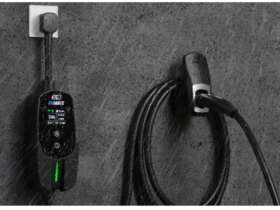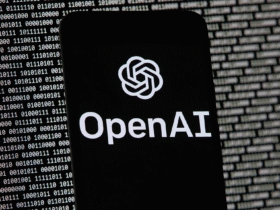In recent years, advancements in artificial intelligence (AI) have brought about significant changes in various sectors, from healthcare to entertainment. However, not all of these developments have been positive. One of the most controversial applications of AI is the creation of AI-generated nude images, specifically through software like DeepNude. This article explores the origins of DeepNude, the ethical concerns surrounding AI-generated nudity, and the broader implications of such technologies on society.
What is DeepNude AI?
DeepNude was an AI-powered software application designed to create nude images of women by digitally altering existing photos. Launched in 2019, the app quickly gained notoriety for its ability to strip the clothing from images of women, creating realistic-looking nude pictures with just a few clicks. The application used deep learning algorithms, similar to those employed in deepfake technology, to generate these images.
The original version of DeepNude was based on open-source code, making it relatively easy for developers to replicate or modify the software. Although the app was shut down shortly after its release due to public outcry and ethical concerns, the technology behind it continues to exist and evolve in various forms.
The Ethical Dilemma of AI-Generated Nudity
Invasion of Privacy
One of the most significant ethical issues with AI-generated nude images is the invasion of privacy. DeepNude and similar applications can create explicit content without the consent of the individuals involved, leading to severe consequences for the victims. This technology has the potential to ruin lives, damage reputations, and cause emotional distress. The fact that these images can be created without the subject’s knowledge or permission raises serious ethical questions about privacy and consent in the digital age.
Objectification and Exploitation
AI-generated nudity contributes to the objectification and exploitation of women. The majority of these applications, including DeepNude, have primarily targeted women, reinforcing harmful stereotypes and gender biases. By reducing individuals to their physical appearance and using technology to exploit their images, these AI tools perpetuate misogyny and contribute to a culture that devalues women.
Legal Implications
The legal landscape surrounding AI-generated nude images is complex and still evolving. In many jurisdictions, the creation and distribution of non-consensual explicit images, including those generated by AI, are illegal. However, the rapid development of AI technologies has outpaced the creation of laws and regulations to address these issues adequately. This legal gray area allows developers and users of such technologies to exploit loopholes, making it difficult to hold them accountable for their actions.
The Dark Web and the Spread of AI Nudity
While mainstream platforms have taken steps to ban or restrict AI-generated nude images, the technology continues to thrive on the dark web. Here, modified versions of DeepNude and similar tools are freely available, and users can easily share and distribute non-consensual explicit images. The anonymity provided by the dark web further complicates efforts to combat this issue, making it difficult for authorities to track down and prosecute offenders.
The Impact on Society
Psychological Harm
The creation and distribution of AI-generated nude images can have devastating psychological effects on the victims. Being the subject of non-consensual explicit content can lead to anxiety, depression, and even suicidal thoughts. The ease with which these images can be created and spread exacerbates the problem, leaving victims feeling helpless and vulnerable.
Erosion of Trust in Digital Media
The rise of AI-generated content, including nude images, has contributed to a growing distrust in digital media. As it becomes increasingly difficult to distinguish between real and AI-generated content, people are more likely to question the authenticity of images and videos they encounter online. This erosion of trust can have far-reaching implications, particularly in areas such as journalism, law enforcement, and social media.
The Role of Tech Companies
Tech companies play a crucial role in addressing the challenges posed by AI-generated nude images. Many platforms have implemented policies to ban or restrict such content, but enforcement remains a significant challenge. AI-driven tools continually evolve, making it difficult for companies to keep up with the latest developments. Moreover, the global nature of the internet means that content banned in one country can easily be shared in another, complicating efforts to regulate and control the spread of AI-generated nudity.
The Need for Education and Awareness
Education and awareness are essential components in the fight against AI-generated nude images. By educating the public about the dangers of these technologies and promoting digital literacy, society can better protect itself from the harms associated with non-consensual explicit content. Schools, parents, and community organizations must play a role in teaching young people about the ethical implications of AI and the importance of consent in the digital age.
The Future of AI-Generated Nudity
Ethical AI Development
As AI technology continues to advance, it is crucial to prioritize ethical considerations in its development and deployment. Developers and researchers must take responsibility for the potential misuse of their technologies and work to create AI tools that benefit society rather than harm it. This includes implementing safeguards to prevent the creation and distribution of non-consensual explicit content.
Strengthening Legal Frameworks
Governments and regulatory bodies must work together to strengthen legal frameworks that address the challenges posed by AI-generated nude images. This includes creating clear laws and regulations that protect individuals’ privacy and consent, as well as establishing mechanisms for holding offenders accountable.
Collaborative Efforts
Addressing the issue of AI-generated nudity will require collaborative efforts from tech companies, governments, and civil society. By working together, these stakeholders can develop strategies to combat the spread of non-consensual explicit content and protect individuals from the harms associated with AI-generated nude images.
Conclusion
Developing AI technologies like DeepNude has brought about significant ethical challenges and societal concerns. As these tools continue to evolve, it is essential to prioritize privacy, consent, and ethical considerations in their use. By raising awareness, strengthening legal frameworks, and fostering collaboration among stakeholders, society can mitigate the negative impact of AI-generated nude images and work towards a more responsible and ethical use of AI technology.














Leave a Reply